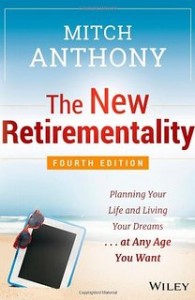Too often the focus of retirement planning is on how much money you have saved and whether you’ll have enough to live on for the rest of your life. While this is important (considering the average 55 year old has only saved $109,000 for retirement), it also ignores some of the other issues to consider such as lifestyle changes and purpose.
Let’s face it, most people thinking about retiring have been working for the past 30-40 years. The last time they didn’t have a job was when they were teenagers. While for some people, retirement feels like an extended vacation (and it usually starts that way for everyone), after a couple of months the euphoria can start to wear off.
A great exercise for anyone considering retirement is to take out a calendar or even a blank piece of paper and outline how you plan to spend your days. If you find lots of blank space, it could be a warning sign that retirement will be less than fulfilling. For many people, part of their self-identity is wrapped around their careers and what they do. Remove this from the equation and you can find yourself lost.
For married couples, it’s also important to consider the lifestyle changes if one spouse already stays at home as your daily routines are about to get turned upside down. I’ve had multiple conversations with non-working spouses who secretly wonder how life will be with their significant other constantly around. There’s an adjustment period that must be acknowledged by both spouses.
Another aspect of work that I hear from retirees is missing is the social connections of being around other people. Developing a strategy to stay engaged either with friends or other groups is crucial to feeding the social animal within each of us. A great way to do this is to volunteer some of your time. There are many worthwhile nonprofit organizations in the Racine community that would love to benefit from your wisdom and experience.
Mitch Anthony’s book “The New Retirementality” is a great resource for understanding some of the non-financial aspects of retirement. For some, the whole notion of retirement (i.e. quitting work) doesn’t make sense, especially when they love what they do. Mitch addresses this concern and dispels other common myths around retirement that I find helps to open the discussion around retirement and move it away from traditional concepts into a more broader discussion of finding purpose in your life now (not when you retire).
especially when they love what they do. Mitch addresses this concern and dispels other common myths around retirement that I find helps to open the discussion around retirement and move it away from traditional concepts into a more broader discussion of finding purpose in your life now (not when you retire).




